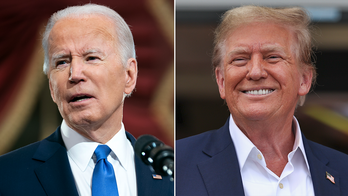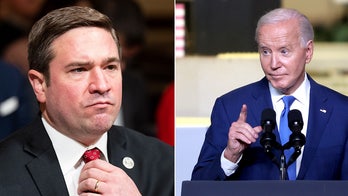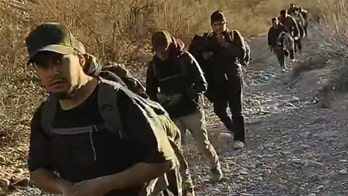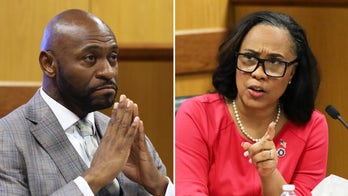It's hard enough to be a Republican on most campuses these days. Now it's hard even being a member of the Republican Club at two of America's most conservative colleges -- because the clubs have been demoted.
Liberty University in Virginia, which banned its College Democratic club in May for holding positions on abortion and gay marriage that were contrary to its conservative Christian values, recently de-listed its College Republican club as well.
And in a similar move, Brigham Young University at Idaho, a school run by the Mormon Church, demoted both its Republican and Democratic clubs to informal status.
While no one questions that a private university has the legal right to ban political speech on campus, the moves have been subject to criticism -- particularly, in these cases, from conservatives who say that campuses that espouse conservative social values should not be barring Republican clubs.
Liberty's chancellor, Jerry Falwell Jr., told FOXNews.com in an interview that he did not de-list the school's Republican club in response to pressure he received from booting the Democrats from campus. Rather, he said, he was applying standards equally. He said he decided that both clubs would become "unofficial" -- meaning they receive no student funding but can meet on campus under approved circumstances.
Liberty's Democratic club initially was ordered to shut down entirely because it was deemed contrary to the school's Christian mission and doctrine. But after a month of public skirmishes and what Falwell calls "false statements fed to the press," he decided to recognize the club informally. At the same time, Falwell said, he received "revelations" that the school's College Republicans might have endorsed former Virginia Gov. James Gilmore in the 2008 gubernatorial election, despite Gilmore's opposition to a total ban on abortion. That, Falwell said, caused college officials to de-list the Republicans too.
Both groups can still assemble on campus, he said, but they must clear the content of their meetings with school officials before getting meeting space. "This is so we don't run into problems in the future," he said. "To be consistent, we took the same recourse with the Republican club. Outside pressure was not an issue."
Falwell says "both sides, Democrats and Republicans, are happy with the new policy." But the whole ordeal has generated mixed reviews.
Jan Dervish, secretary of Liberty's College Democrats, told the Associated Press he was satisfied with the new arrangement, and Virginia Gov. Tim Kaine, who heads the Democratic National Committee and had been critical of the ban on the Democratic club, was quoted saying the compromise at Liberty "makes a lot of sense."
But conservatives and fellow College Republicans are split. Robert Knight, a senior fellow with the conservative United Civil Rights Council, said Falwell should have stuck to his guns and expelled the Democrats, leaving the Republican students alone. "They had every right to withhold official endorsement of organizations promoting beliefs that are antithetical to theirs," he said. "Giving in to bullies only encourages them -- appeasement doesn't work."
Ashley Barbera, spokeswoman for the College Republican National Committee, sees the compromise as "hurting everybody." She said it further marginalizes political awareness and involvement among a generation that already grapples with apathy on campus. "I don't think anyone's interests are served when universities de-recognize any political organization, Republican or Democrat, for that matter," she said.
The Foundation for Individual Rights in Education (F.I.R.E.), which typically defends free speech for conservatives on campus, said it doesn't hold a position on Falwell's decision, but it acknowledges that as a private institution offering no illusions about free speech and political and social tolerance on campus, Liberty was probably on firm legal footing from the start.
F.I.R.E. President Robert Shibley pointed out that students have to sign an agreement when they come to Liberty that binds them to the school's Code of Conduct. That code, which dictates everything from a strict dress code, random drug tests and behaving with the "highest ideals of moral virtue and professionalism," does not include free speech guidelines. "You can make the argument that those are rights you agreed to give up when you came," Shibley said.
The story has been similar at BYU-Idaho, which announced in May that it would be de-listing its College Republicans and College Democrats from "official" status.
All BYU students must agree to uphold conduct "consistent with the ideals and principles of The Church of Jesus Christ of Latter-day Saints." The church's Code of Conduct sketches out behavior and standards, including a dress code, but no free speech.
But BYU-Idaho spokesman Andrew Cargal said the decision to demote political clubs was based on an update of the school's political neutrality policy, rather than on its strict religious policies or the university agreeing or disagreeing with any particular party . He insisted the changes had nothing to do with developments occurring at the same time at Liberty University.
The school's College Republicans have been well known for their large numbers and active presence on campus, and particularly for the campaigning they did for Republicans in the last presidential election. In contrast, the group of College Democrats on the campus is relatively small.
"That was definitely a talking point," Cargal acknowledged. But he denied that the school might have been pressured to appear less Republican or that the disparity in numbers had anything to do with the school's decision to de-list.
"We just shouldn't be a sponsor of any partisan politics at the university," he said.
Some College Republicans at the school said they felt slighted, especially since the main BYU campus in Provo, Utah, and BYU-Hawaii did not de-list their partisan clubs, nor do they have any plans to. "I'm really surprised and disappointed by the decision," said Brandon Johnson, chairman of the Idaho College Republicans.
"Hundreds, maybe thousands, of universities express their 'neutrality,' by allowing any political club to set up, and I think that working with them indicates their neutrality very well," said Johnson, who described the small group of Democrats at BYU as "pretty passionate" and well-meaning.
Others, like Knight, see the current scrutiny of these conservative campuses as the usual double standard. "If observers are worried about censoring political views on campus, they should look at the real egregious cases occurring every day on every state-run campus in America," he said.
"They are perfectly comfortable with conservatives being shouted down at these tax-supported institutions. The hypocrisy is monumental."




